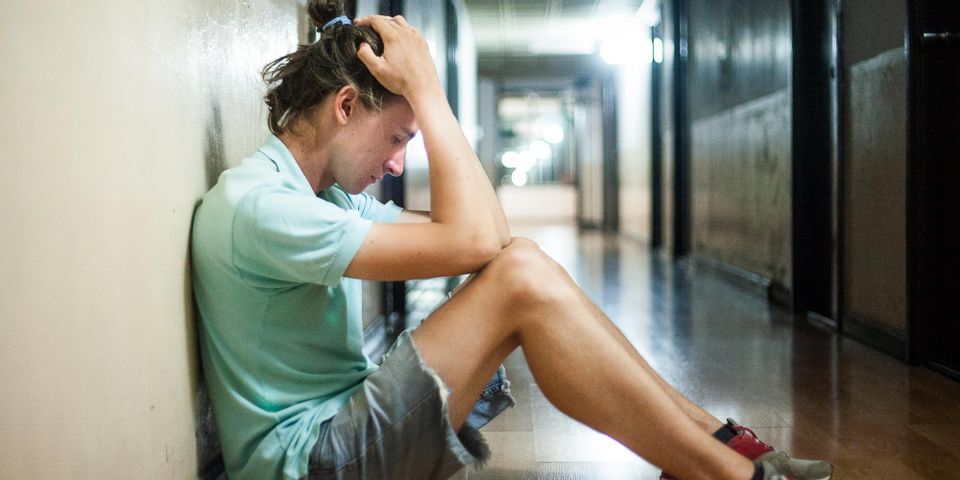
Fluctuating hormones and stress are common experiences during puberty, and, sometimes, they can mask symptoms of an underlying emotional disorder. Experts say that one in five teens will go through depression and anxiety. October is Emotional Wellness Month, a perfect time for parents and educators to discuss how to help teenage students in crisis.
What Causes Depression & Anxiety in Teens?
Depressed teens may not recognize their self-worth, making it difficult to accept even minor setbacks or rejection. This happens frequently with high-achieving students who put extreme pressure on themselves to excel at everything. When they consistently compare themselves to others, they might feel angry and frustrated when they don’t meet self-imposed expectations.
Academic pressure is a strong presence in high school—especially if your teen plans to attend a competitive college or university. Sometimes the emotional toll from overachieving can exacerbate symptoms of depression. Social pressures to “fit in” can also create a sense of isolation that will trigger depression. With the advent of social media and technology, it’s often difficult for kids to escape this emotional burden. They might feel like they need to stay in constant contact with their friends to maintain their status within a group.
Many factors can influence how people experience depression, but the underlying cause of the condition is still being researched. When you approach the topic with your teen, try to remember that depression is treatable, and like any other illness, no one is at fault.
What Are the Common Signs of Depression?
 Parents and educators should recognize common signs of depression or anxiety so they can provide support to students in crisis. The most common symptoms include hostility and aggression, frequent bouts of crying, feelings of hopelessness, losing interest in activities and people, and a dip in energy.
Parents and educators should recognize common signs of depression or anxiety so they can provide support to students in crisis. The most common symptoms include hostility and aggression, frequent bouts of crying, feelings of hopelessness, losing interest in activities and people, and a dip in energy.
Students in crisis may also have difficulty with their attention span, which can affect their school work. Sleeping and eating habits can change, and they might complain about aches and pains when doctors are unable to identify a physical cause. Serious symptoms include talking about suicide, even in a lighthearted manner, or being obsessed with death. Mental illness can manifest in many ways, and every individual experiences depression differently.
Getting help is critical for restoring confidence and helping teens cope with a rollercoaster of emotions. Listening and acknowledging their feelings is a good first step; sometimes professional assistance is also needed. Make sure your teenager attends wellness visits with a physician and eats and sleeps regularly. Try to be mindful of your own behaviors when handling stress. Your children will model you.
Logos School in St. Louis, MO, was built to help students in crisis. The therapeutic school provides programs and care for children and teens who need guidance for a more successful future. When traditional academics aren’t working, this school for students with anxiety and depression will step in to provide the social and behavioral therapies needed. For more on their youth therapy programs, call (314) 997-7002 or visit them online.
About the Business
Have a question? Ask the experts!
Send your question

